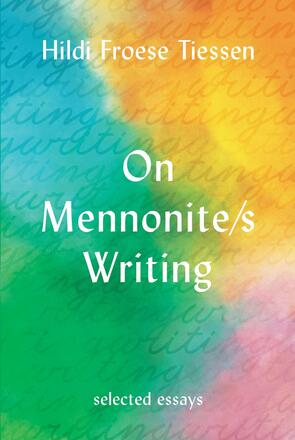
On Mennonite/s Writing
Selected Essays
La description
In 1973, Hildi Froese Tiessen published the first academic essay about Rudy Wiebe's fiction (included in this volume). Since then, in scholarly essays and talks, she has examined with great insight the literary careers of Di Brandt, Patrick Friesen, Julia Kasdorf, Sandra Birdsell, and David Waltner-Toews, as well as key origin figures like Arnold Dyck and Al Reimer. Dr. Froese Tiessen’s widely admired essays include several (among the first of their kind) which situate Mennonite literature in relation to postmodernism, as well as investigations of the sometimes disconcerting ethnic and theological assumptions about Mennonite artistic practice. The essays in On Mennonite/s Writing are the first solo collection of Dr. Tiessen’s writings, and she has written a major new piece especially for this publication.
Reviews
"Hildi Froese Tiessen has played an essential role in the remarkable flowering of Mennonite/s writing over what is now half a century. The publication of her essays reveals anew the great generosity, critical acumen, and encyclopedic knowledge that Tiessen has offered to the Mennonite writing community." —Jeff Gundy